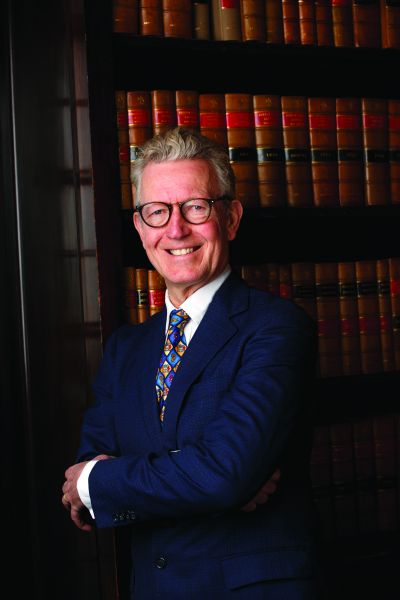
HMCTS has so far named Liverpool, Hull, Stafford and Snaresbrook Crown Courts as test courts for the COVID-19 operating hours pilot.
However, Simon Davis, Law Society president (pictured) warned criminal defence solicitors ‘can’t be magicked up to cover extended hours’.
He said the plans would adversely affect overstretched and underfunded criminal defence firms and the capacity to cover the additional hours might not even exist.
As of 2 July, according to a justice minister answering written questions, there were 1,146 firms (1,694 offices) holding a criminal legal aid contract―125 fewer criminal legal aid firms than in 2019 and far fewer than the 1,861 firms that existed in 2010.
‘We have repeatedly made clear to the Ministry of Justice that extended hours are not the right approach to tackling the backlogs in the courts because of the significant impact they would have on court users, legal practitioners and how our justice system functions,’ Davis said.
‘There would be financial and administrative implications for solicitors and those with caring responsibilities are likely to be hit hardest. Ever fewer criminal defence lawyers are being asked to do ever more work, and the profession is close to breaking point.
‘Despite our opposition, a pilot is going ahead to test out a model of extended hours. Court listing is a judicial function, so if a court chooses to list hearings in this way, there is little the profession can do about it.
‘If extended court hours are to be imposed on solicitors, the additional costs they face must be covered so they can continue to do their job properly, uphold the rule of law and allow people access to justice.’
Davis said: ‘Before looking at extended hours the Ministry of Justice and HMCTS must ensure that it is making maximum use of normal court hours and the existing court estate, quickly take up further building space and avoid any restrictions on judges sitting while there are court rooms (real, virtual or Nightingale) available.’









